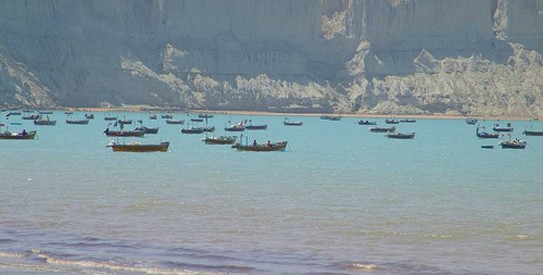From Gilgit To Gwadar – Rise In Pakistan’s Drug Abuse

Development remains elusive in Gilgit-Baltistan in Pakistan-Occupied Kashmir, but its poverty-stricken and unemployed people get narcotics smuggled via the Karakoram Highway, wine from China via the Khunjerab Pass and a variety of tranquilisers; which are made easily available for addicts.
Their addiction surpasses the means to pay and causes domestic violence and many other familial, and community issues, a report in Baad-e-Shimal dated December 18, 2023, reveals.
Six kg of opium was seized at the Kachora check-post from Gilgit to Skardu. As per a local survey, more than 30 thousand people are suffering psychological problems and almost the same number are drug addicts.
The southern Sindh province has a similar story to share. It is home to about 100,000 injecting drug on a daily basis and an estimated 570,000 people use opioids.
Khyber-Pakhtunkhwa Caretaker Chief Minister Muhammad Azam Khan has said that 11 per cent of the population in the province suffers from drug abuse, terming the prevailing situation of drug use in Pakistan and especially in K-P as of “grave concern.”
Located deep into the “red zone” of narcotics transport and abuse, Pakistan is both a producer and transporter of banned drugs from neighbouring Afghanistan where no regime in the last 50 years, including those backed by foreign forces, has been able to curb the rising cultivation, processing and transporting of a variety of drugs. A good quantum of drugs are transported to India, across the Line of Control (LOC).
Pakistan’s university campuses and even schools are experiencing a constant rise in drug use with official connivance/inability/failure. Absenteeism in classrooms matches that at work. Women also consume drugs. The most common causes of drug addiction in Pakistan are family issues, mental illness, peer pressure and toxic relationships.
Much of the effort at policing drugs and curbing their consumption has gone haywire in recent months due to political instability, unprecedented economic distress and ineffective governance by both the civil and the military authorities that are now preparing for national elections. Platitudes apart, the polls offer no solution to drug abuse, like many other issues that bedevil Pakistan. It is more so, analysts say because drug abuse has percolated to the poorest sections of the society.
Figures for 2023, as the year nears the end, are not available. No serious field and research work has been done. The overall results of a 2022 survey revealed that approximately six per cent of the population – 9 per cent of the adult male population and 2.9 per cent of the adult female population – equivalent to 6.7 million people – had used a substance other than alcohol and tobacco in the preceding year.
Although there are no official statistics, health professionals in Pakistan, a nation of some 240 million, warn that addiction to crystal meth is soaring, Radio Free Europe (May 20, 2023) stated.
Data provided by the Anti-Narcotics Force indicates the magnitude of the unmet challenge. There are 7.6 million drug abusers in Pakistan. There were 4.5 million in 2013 when the United Nations Office on Drugs and Crime (UNODC) held its first survey. Another survey is now underway. It is said that nearly half the drug abusers in Pakistan are under 30.
The spike has been most visible in the restive north-western province of Khyber Pakhtunkhwa, which borders Afghanistan.
Meth is a highly addictive stimulant that can be injected, snorted, smoked, or ingested orally. Health experts say users get a “euphoric high” that can last from minutes to several hours. Meth abuse can lead to anxiety, insomnia, and violent behaviour.
“Schoolchildren are at risk. It is not the system of education that makes them vulnerable to social evils such as drug addiction (substance use disorder, or SUD in medical parlance): schools also fail to provide students the support they need in their adolescent years. When there is talk of illicit drugs, it is generally in the context of their seizure by the authorities,” Zubeida Mustafa wrote in Dawn (August 11, 2023).
There is little chance of the drug abuse in Pakistan reducing, let alone stopping, as social and economic conditions and political indifference that do not go beyond platitudes, pose serious obstacles on the path. Needless to emphasize that Pak Int. Agencies have been using drugs to fund terrorism and in the process the Pak society has also got involved in it. REAP WHAT YOU SOW.






